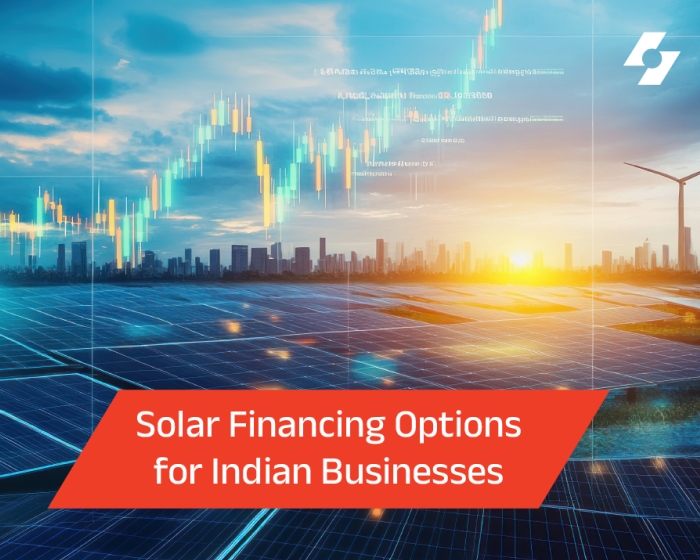India is moving a forward at a very fast pace on the pathway of Sustainable Development with its target to cut down its carbon emissions and increase the share of renewable sources. It has set the goal to decrease the carbon intensity of the nation’s economy by 45% by 2030 and to achieve net-zero carbon emissions by 2070. As a part of this strategy, India wants to achieve an installed renewable energy capacity of 500 GW by 2030. In accordance with these targets, the government plans to promote the development of solar cities and has sanctioned the setting up of 57 solar parks with a capacity of 39. 28 GW.
As of June 2024, India’s cumulative installed solar capacity reached 87.2 GW, with 14.9 GW of new installations added in just the first half of the year. Installation in the renewable energy sector will thus take place with time, particularly in the solar industry. Even though the cumulative installed solar capacity in India is already at 89.4 GW as of Aug 2024, new installations are still on track to expand in the future.
India is on course to increase its production of solar energy to a massive 748 GW, according to research conducted by the National Institute of Solar Energy.
The financing option for solar panels is a game-changer that allows businesses to use the sun’s energy without breaking the bank. Let’s discuss what is renewable energy financing and how you can choose the right financing option for your business.
India is moving forward at a very fast pace on the pathway of Sustainable Development with its target to cut down its carbon emissions and increase the share of renewable sources. It has set the goal to decrease the carbon intensity of the nation’s economy by 45% by 2030 and to achieve net-zero carbon emissions by 2070. As a part of this strategy, India wants to achieve an installed renewable energy capacity of 500 GW by 2030. In accordance with these targets, the government plans to promote the development of solar cities and has sanctioned the setting up of 57 solar parks with a capacity of 39. 28 GW.
As of June 2024, India’s cumulative installed solar capacity reached 87.2 GW, with 14.9 GW of new installations added in just the first half of the year. Installation in the renewable energy sector will thus take place with time, particularly in the solar industry. Even though the cumulative installed solar capacity in India is already at 89.4 GW as of Aug 2024, new installations are still on track to expand in the future.
India is on course to increase its production of solar energy to a massive 748 GW, according to research conducted by the National Institute of Solar Energy.
The financing option for solar panels is a game-changer that allows businesses to use the sun’s energy without breaking the bank. Let’s discuss what renewable energy financing is and how you can choose the right financing option for your business. Additionally, investing in advanced technologies such as the Bifacial Solar Panel can further enhance energy generation by capturing sunlight from both sides, maximizing efficiency and returns on your financing investment.
What Does Financing Mean in the Solar Energy System?
Solar financing refers to the subsidies granted to firms to help them absorb the expense of installing solar panels. It also enables businesses that may need more capital to make large investments to install solar energy solutions. Several funding options exist; however, if companies want to maximize the value of the underutilized rooftop space, the popular funding option is known as rooftop solar loans.
Understanding the Need for Solar Financing
The capital cost involved in the installation of solar power systems could be high, particularly when it comes to larger systems. This may pay off when the cost of electricity is lower and where incentives from the government can be obtained. Solar financing helps overcome this challenge since the price is not paid upfront but is distributed over time, making it easier for businesses to afford. For more details on solar power solutions and financing options, explore our dedicated information on Renewable Energy Budget planning.
Types of Solar Financing Options Available in India
Loan for Solar System From Financial Institutions
Without worrying about how you’re going to pay for power, you can pay off your loan in installments. For rooftop solar installations, you can get a loan of up to INR 10 lacs with interest rates ranging from 8% to 10%.
The bank will often approve between 75% and 90% of the total loan amount, depending on its policies. But keep in mind that every bank has its own interest rate and estimates for EMI calculations.
Government Schemes and Subsidies
The public and private usage of solar rooftop panels has been encouraged by the introduction of several schemes by the Indian government.
For instance, grid-connected PV systems on canals are eligible for an industrial subsidy from the government. 30% of the cost of projects on the canal’s top and 15% of initiatives on its banks are covered by the program.
Additionally, a maximum CFA of INR 2.25 billion will be distributed over two years for 100 MW, with SECI receiving a 1% service charge. Additionally, for solar power facilities with batteries, there is a CFA of INR 40.5 per watt for a 10 kW battery capacity.
These incentives are all part of programs like the PLI scheme for solar rooftop installations and the PM Kusum Yojana.
These schemes assist in bringing down the price of installing solar panels from INR 70,000 to INR 30,000 for a 1 to 2 kW system. Incentives of up to INR 2000 per year are also available to investors or customers who generate electricity at a rate of 1100 kWh or more.
Solar Leasing
Solar items that are appropriate for household and commercial projects can be leased from a variety of platforms or company developers.
You can begin using solar energy by signing a lease, ranging from five to fifteen years, with the service provider at a fixed monthly rate.
Power Purchase Agreements (PPAs)
PPA is similar to leasing in that you pay the service provider a monthly fee. However, with a PPA, you have no electricity bills to pay and may immediately begin to benefit from the solar asset.
Your EMI payment is determined by how much energy you use. When compared to local electricity providers, solar-generated power is significantly less expensive.
How to Choose the Right Financing Option?
Select the most suitable financing plan for your business by evaluating factors like financial status, project size and project projection.
Consult a qualified financial advisor with a view to arriving at a good decision after weighing the pros and cons of the available choices.
Benefits of Investing in Solar Energy for Business
- Cost Savings: Solar panel financing prevents the consumer with immediate and future costs. Although they may require high initial costs, businesses save energy costs in the future.
- Environmental Impact: The application of solar-related sources can be considered a corporate social responsibility. Organisations can reduce their emission of carbon by practising renewable energy produced from the sun, providing environmental sustainability.
- Tax Incentives: Business entities are encouraged to adopt solar energy solutions by financial bonuses like tax credits and rebates.
Solar Loan vs. Solar Lease vs. PPA
The table below provides a comparison of the three main solar financing options available to businesses in India.
| Feature |
Solar Loan |
Solar Lease |
Power Purchase Agreement (PPA) |
| Ownership |
Business |
Third-party company |
Third-party company |
| Upfront Costs |
High |
Low |
Low |
| Monthly Payments |
Interest payments on loan |
Lease payments |
Electricity purchase payments |
| Maintenance |
Business |
Third-party company |
Third-party company |
| Control over the Solar System |
High |
Low |
Low |
| Potential Tax Benefits |
Yes |
May be limited |
May be limited |
| Long-term Costs |
Lower |
Higher |
Higher |
| Flexibility |
High |
Limited |
Limited |
| Suitable for |
Businesses with strong credit and upfront capital |
Businesses with limited upfront capital |
Businesses with predictable energy consumption |
How can Sunsure Energy Help?
Sunsure Energy is one of the prominent renewable energy companies operating in India. Solar financing is one area we have helped many businesses to explore. We have a proficient team who can advise and recommend the best financing opportunities for your business.
Grow your business with solar energy financing from us. Call us today to find out more about how you can take advantage of the sun.
Subscribe to our newsletter




